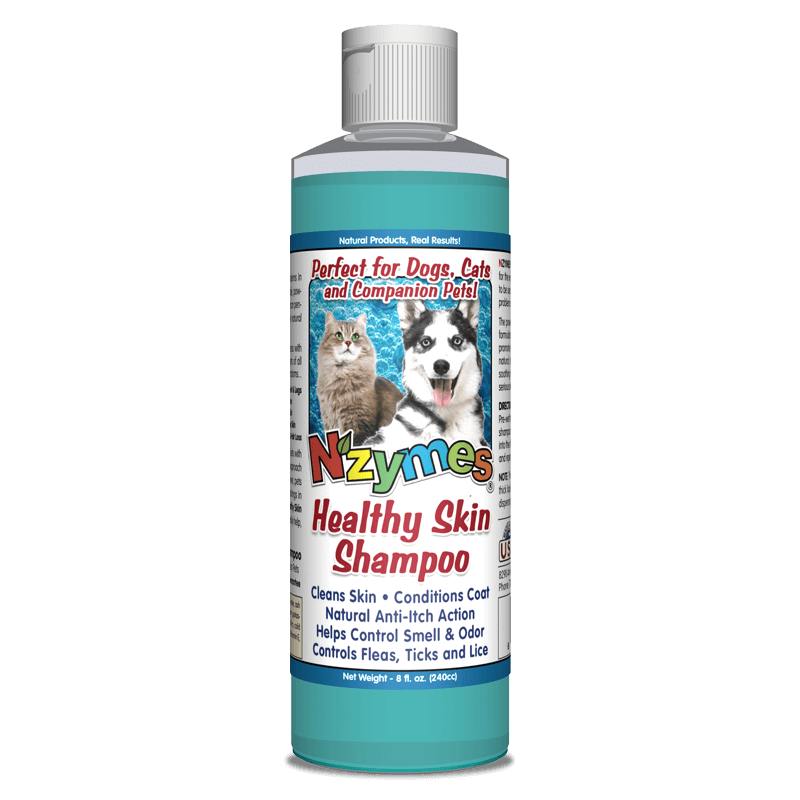Has Your Dog Been “Diagnosed” with Allergies? Are you Feeling Hopelessness?

Welcome to the club. According to many recent polls of dog owners, “dog allergies” is the most frequent ailment diagnosis heard from local veterinarians in our modern times. Yet, why would so many dogs, maybe 1/3 of the entire dog population, be prone to “allergies” – that serve to create horrific ‘dog skin problems’? As you begin to dig deeper into research, you’re likely find that true “dog allergies” situations are actually not all that common. So why is your dog itching and scratching, along with various other symptoms? This is the big question we hope to settle for you.
For these next few moments, just consider this: Maybe the real problem isn’t really about “allergies” at all, but actually another issue, which is not only very easily caused (by over-use of pet vaccinations, antibiotics, etc.) but is readily Resolvable as well. Whereas, trying to win the “dog allergies” struggle is an endless and hopeless situation. This may seem like a big leap to you now, but please take the time to read to the end. It may be the best decision you can make.
The 5 Major Myths Dog Owners Should Know About ‘Dog Allergies’
Myth #1: My dog is allergic to just about everything
This just happened to a friend of mine: a quick trip to the vet because of a few itchy hot spots turns very serious. The vet has the doggy dermatologist run a few tests and says, “He’s allergic to just about everything. That explains it.”
No, it actually doesn’t.
Think about it. How likely is it that a dog would be allergic to grass, trees, meat, fish AND you? Aren’t dogs made to live in the grass, hunt their own prey and handle any number of weird things in the puddles they drink from? Doesn’t it seem that human dander (another alleged offender in the ‘allergy’ battle) would be the least of concerns given the far more offensive things that they roll in at the dog park, or around your home?
The truth is, if your dog’s immune system is at all compromised, he may ‘appear’ to be allergic to any number of things. It’s called a heightened state of response, otherwise known as immune Hypersensitivity, and will actually cause false positives in allergy tests. It is far more likely that your dog is dealing with an issue within the immune system itself. A weakened immune system is often a result of a GI tract that is out of balance. Improper nutrients in the diet can accelerate the diminishing of friendly, intestinal bacteria and allow an overgrowth of yeast fungus (candida) in his gut. Yeast by-products will always find a way out – mainly through the easiest and most abundantly available routes: sweat glands of paws, ears, and hair follicles (part of the skin). The skin, being the largest organ of the body, will always be involved when the body is cleansing yeast by-products (toxins, poisons) or dying cells. In fact, the earliest signs of problems with yeast overtaking the GI tract will show up at ears, paws, or both. Therefore early symptoms will be too much licking at feet/legs, OR shaking head & attempting to scratch ears. Next comes the repeating itch/scratch activities.
Is this starting to sound familiar?
Myth #2: Steroids help my dog’s allergy problem
Allergies are defined as an overreaction of the immune system. Steroids are used to suppress the immune system, or at least suppress immune function. They do not treat or combat anything that is causing the immune system to act out. Their purpose is only to mask a situation by controlling the ‘symptoms’ of an underlying issue. It should then be no surprise that as soon as the steroids wear off, the itching and scratching problems return. And usually worse, as the immune system has been further weakened by the steroids. (Antibiotics also weaken the immune system by killing off more ‘friendly bacteria’ elements, and should only be taken for their intended use – proven bacterial infections.)
It’s worth noting that steroids boast a long list of other side effects, so it’s worth the extra time/effort spent to dig deeper in your search for what may be the true cause of the itchy skin and related symptoms. NOTE: There are hundreds of home remedies (online) from dog owners (or Nzymes) to help control the itchy skin without hurting his immune system.
Myth #3: Dogs need grain-free diets to avoid food allergies

Negative. All grains are not created equal. Grains are seeds of grasses cultured for food. All grains are all sources of carbohydrates, which provide a necessary role of providing energy to the body. However, grains are rarely the problematic source of dog ‘food allergies’. The rare occasion of ‘real’ allergies are actually more commonly caused by meat or dairy, not grains.
When the meat sources of your dog’s food are not changed regularly, it may be possible for a dog to develop a food allergy to the particular meat protein. If you think your dog has an allergy to his food, change the meat protein source (i.e. substitute chicken for lamb) and add an immunity booster to the diet. You should see a complete recovery of the allergy symptoms within two weeks, max.
If you don’t see the recovery, it’s time to try the same thing with dairy. This is the good way to decipher if a dog food allergy is actually causing the problem. While it is possible for a dog to have an intolerance to a specific grain or other protein, dog ‘food allergies’ are not really very common. And, a ‘food intolerance’ issue would not surface as “itching/scratching symptoms”, but instead show up with diarrhea or vomiting.
Myth #4: Allergies are the cause of chronic ear infections
False. In fact, and contrary to popular belief, ear infections are rarely a symptom of dog allergies.
This is a good time to re-visit Myth #1. As mentioned, a yeast overgrowth issue (of the gut) is commonly confused for ‘dog allergies’ because the yeast ‘die off artifacts’ (junk) tend to choose preferred pathways to exit the body initially: paws (because of sweat glands), ears (easy exit point) and hair follicles (final pathway for easy exit). The EARS tend to build up this yeasty ‘junk’ coming out – accounting for the ‘infection’ assessment as well as the horrible, intolerable yeasty odor (Fritos anyone?) that permeates the air and entire household.
Chronic ear infections (yeast buildup) are then commonly a result of the internal yeast overgrowth and the mass exit of the ‘junk’ previously described. Bacteria can also cause ear infections, but…if your dog is treated with antibiotic ear drops and the infection returns as soon as the drugs stop, you can be sure the issue is actually tied to yeast (especially obvious with powerful odor issues). See How Yeast Ravages a Body.
Myth #5: It’s hopeless
OK, you’ve done it all – you’ve got the special shampoo, the hypoallergenic chew toys, and the new cure-all kibble. You’ve cleaned your home of all the human dander you can find, washed your clothes in a mild detergent and wouldn’t dream of going to the dog park on a high pollen day.
It’s an endless effort rewarded by good days… but you still have those bad days all too often.

So. Maybe your dog actually has allergies…. If you’ve considered all the possibilities, have done all your research and are confident of the diagnoses, I’m sorry to have wasted your time. dog allergies
But, if you’re starting to wonder, and maybe deciding you’ve “had it” with the endless licking, itchy skin and scratching, repeating ear infections, and maybe hot spots that never really leave – it might be time to consider that your dog is actually dealing with a “real”, definable and resolvable issue: a ‘systemic yeast infection’.
So, it’s actually not the end of the world. In fact – it’s actually the “light at the end of the tunnel” you may have been seeking.
Unlike allergies, this yeast issue can be corrected – with a high-protein, low-starch diet along with immunity boosters, probiotics (not antibiotics) and natural anti-fungal treatment.
It’s Not Hopeless
Fortunately, Nzymes has been dealing with these problems for over 20 years, and has therefore formulated an effective formula to get things under control – which evolved into our comprehensive Healthy-Skin Program. If interested in an answer to these issues – instead of repeated rounds of ‘Treatments’ the produce NO long-lasting results – you should spend some time to carefully check out our Program. We cannot tell you it is quick, but it does work, even though a lengthy process.
Some people are always looking for that ‘silver bullet’ (quick fix for the dog’s troubles). We’re sorry to tell you, “It does not exist”. We deal with nearly 200 new cases each month. If we didn’t know what we were doing, we’d be out of business – a long time ago.
You can watch this short VIDEO. And, you can check out example stories, like Ginger or Savanna, from the thousands of dog owners who were able to defeat the yeast overgrowth issues after being repeatedly told their dog had “allergies”.





